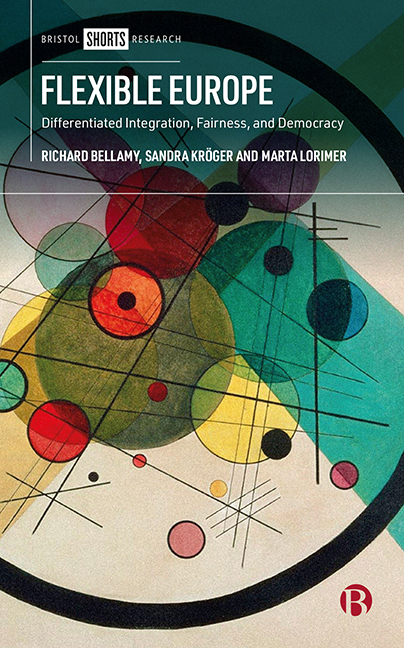Book contents
- Frontmatter
- Contents
- List of Tables
- List of Abbreviations
- About the Authors
- Acknowledgements
- Introduction
- PART I Normative Perspectives on Differentiated Integration
- PART II Political Party Perspectives on Differentiated Integration
- Conclusion
- Appendix A List of Respondents
- Appendix B Interview Questions
- Appendix C Survey Questions
- Notes
- References
- Index
three - Democratic Backsliding and the Limits to Differentiated Integration
Published online by Cambridge University Press: 15 September 2022
- Frontmatter
- Contents
- List of Tables
- List of Abbreviations
- About the Authors
- Acknowledgements
- Introduction
- PART I Normative Perspectives on Differentiated Integration
- PART II Political Party Perspectives on Differentiated Integration
- Conclusion
- Appendix A List of Respondents
- Appendix B Interview Questions
- Appendix C Survey Questions
- Notes
- References
- Index
Summary
Recent developments in Hungary and Poland have pushed the issue of democratic backsliding to the centre of political and academic debates about the nature and future of the EU. Democratic backsliding consists of a retreat by an incumbent government from democratic values and practices with the intention of curtailing criticism and inhibiting democratic opposition. As such, it involves a shift from democracy towards autocracy. A number of commentators have argued that the demoicratic and flexible view of the EU advocated here cannot provide an adequate response to this unfortunate development. They fear the constitutional pluralist approach to EU law associated with this position undermines the legal remedies that might otherwise be available to act against such regimes, while the related justifications of DI explored in Chapters 1 and 2 might be employed by them to opt out from a commitment to meet the democratic standards enumerated in Article 2 as preconditions of EU membership (Kelemen, 2019). In this chapter we seek to respond to this criticism. We shall argue that a constitutional pluralist approach can offer a theoretically coherent rationale for countering democratic backsliding, including applying conditionality requirements to the receipt of EU funds and removing certain voting rights in the Council – measures which we dub ‘value’ DI.
Constitutional pluralism (CP) reflects the logic of the demoicratic conception of the EU as an association of democratic states that ‘govern together but not as one’ (Nicolaidis, 2013, p 351), a view we have seen as underlying arguments for differentiated integration. CP considers that the conferral of competences upon the EU not only takes place in conformity with the different constitutional processes of the various member states but also remains constrained by them. EU law, therefore, has a plurality of different national sources. Meanwhile, the validity of EU law's claims to primacy ‘results from [each] state's amendment of constitutional and subconstitutional law to the extent required to give direct effect and applicability to Community law’ (MacCormick, 1999, p 117). EU law may itself constitute a distinct legal system and the CJEU be the highest authority with regard to the interpretation of its norms, as the CJEU insists, but the same holds for the highest court in each of the member states with regards to the national legal system, which thereby retains the competence to interpret the validity of EU law in its interaction with domestic law (MacCormick, 1999, p 118).
- Type
- Chapter
- Information
- Flexible EuropeDifferentiated Integration, Fairness, and Democracy, pp. 68 - 86Publisher: Bristol University PressPrint publication year: 2022



